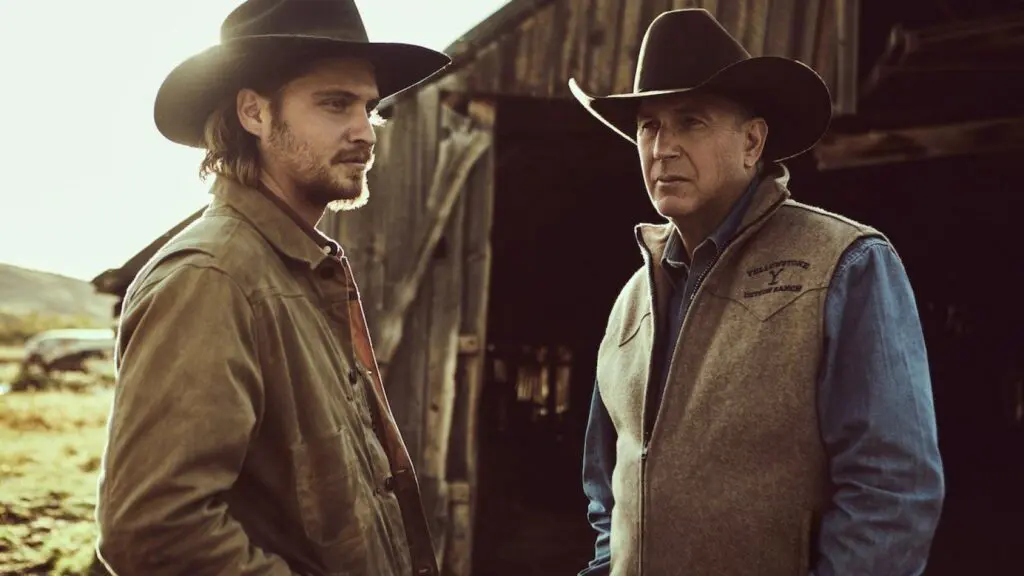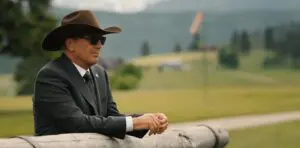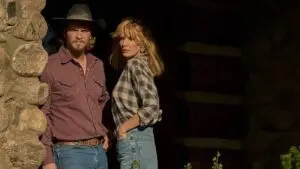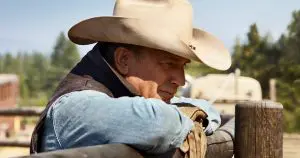Summary
“You’re the Indian Now” sees Yellowstone return with a calm, contemplative episode, as the effects of last season’s finale still linger, and new threats begin to emerge.
This recap of Yellowstone Season 3, Episode 1, “You’re in the Indian Now”, contains spoilers. You can check out our thoughts on the previous season by clicking these words.
After the blood-and-guts finale of Yellowstone Season 2, “You’re the Indian Now” must have seemed like the well-liked neo-Western taking its foot off the gas – or out of the stirrups, to use a more appropriate simile. Indeed, the record-breaking Paramount viewership that tuned in for the third season premiere has expressed a little disappointment in the fact that nothing really happened in this latest episode, but is that true, really? John Dutton stepped down as livestock commissioner, and he’s going to be replaced. A smarmy new villain emerged in the form of Ellis Steele (John Emmet Tracy), an expansionist property-management type with designs on the coveted Dutton land. Josh Holloway enjoyed a spot of fishing and flirtation with Beth. And Tate opened up about his nightmares following his kidnapping last season.
That’s a lot! And while it might not necessarily have been action-packed, that’s entirely the point – and also, for that matter, entirely how the show has operated in the past. There’s always a calm before the storm, always a big huff before the puff; houses, though, invariably get blown down all the same. Spending idle time on the ranch looking contemplatively at the gorgeous landscape is part of the process.
Besides, we needed a cool-down after Tate’s violent rescue in the Season 2 finale, since that whole affair continues to loom large over Yellowstone season 3, episode 1. John steps down from his commissioner position in large part to keep his family out of the media furor that is inevitably going to be whipped up in the wake of a shootout between two rival private militias. But he keeps Lynelle, and thus the audience, in the dark about who his replacement might be. In this decision, and following it immediately with Mo suggesting to Chief Rainwater that maybe John isn’t the enemy they’ve assumed he is, “You’re the Indian Now” positioned John in more of a sympathetic good-guy role that is reinforced later during his bonding with Tate, who is blighted by PTSD-induced nightmares. When Kayce and Rip run into the aforementioned Ellis Steele taking a bunch of city folk from the Paradise Valley Sporting Club jaunting across the ranch land, we, like them, have our hackles raised. Why can’t big-money developers just leave these people alone?
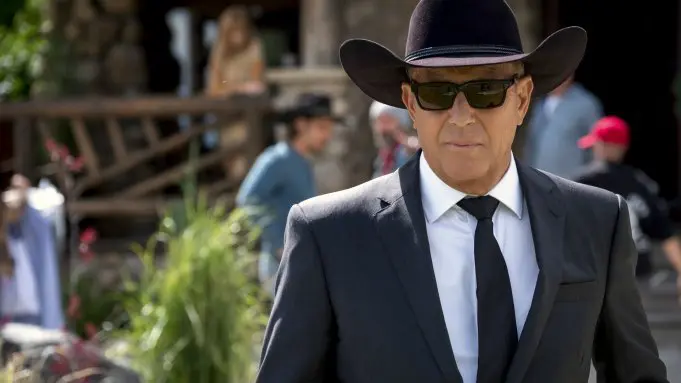
Of course, the Duttons must always be in conflict – we wouldn’t have a show if they weren’t. But the scars of those conflicts aren’t healing as quickly as they once did. Tate isn’t the same, and perhaps never will be. And Beth’s bruises haven’t healed between seasons. While she’s out buying whiskey, she runs into another beat-up woman, and they share a brief moment of solidarity in being the victims of men. A theme that persists, though, is that the Duttons are able to handle things differently. Beth cheerfully explains that her boyfriend put her abuser’s head through a wall and she stoved it in with an 8lb ashtray. She advises a new boyfriend, and a big new ashtray, as the woman looks on in horror.
But for all her war wounds, Beth still remains the most desirable woman in Montana, as well as the smartest. Her – and indeed our – introduction to Roarke Morris (Holloway) crackles with flirty chemistry and the promise of more to come from the ranch his family apparently owns five meals upstream. And of course, it’s her who suggests to John that perhaps the best fit for the new livestock commissioner position might not be Kayce, as he thinks, but Jamie, who is so endlessly self-serving that he’ll use the influence to flatter his voter base who just happen to be ranchers integral to the Dutton’s livelihood. Everybody wins, and Jamie doesn’t have to get lassoed in the bunkhouse.
Yellowstone season 3, episode 1 also continued to develop Monica, who, far from blaming John for what happened to Tate, wants him to take the young one camping to keep an eye on the cattle in order to help with his nightmares. “You’re the Indian Now” is a quote from her, but not really a combative one — more a statement of fact. She sees the value of this pure, outdoorsy lifestyle, which is presumably why when she goes to work and catches all her students glued to their phones, she pulls no punches in telling them that they’re a waste of her time. This championing of Mother Nature and old-fashioned family values is pretty integral to Yellowstone and is another way of convincing us that, no matter what they might be capable of, the Duttons are the good guys in this story; the moneyed upper-crust urbanites are the villains, encroaching on their territory. The dispute isn’t between the Duttons and the Natives anymore, at least it doesn’t seem to be, and since Monica is a Native herself it means something that she sees her husband’s family as having a more righteous claim to the land than the city folk they so detest.
As it draws to a close, “You’re the Indian Now” finds Rainwater running afoul of Ellis and his land-eating company, who have gotten a cease-and-desist to prevent the Chief’s continuing construction. But the point of all this, and the architect of it, is left deliberately vague for now. As John and Tate nestle under the starlight to the not-too-distant sound of howls, it’s pretty obvious that there are many different kinds of wolves beginning to circle.

